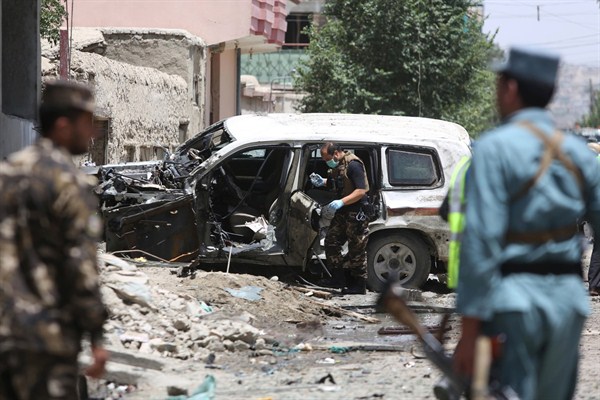The “Wizard of Kandahar” is no more: The Afghan Taliban and family of Mullah Muhammad Omar acknowledged the death of the elusive Taliban founder and leader in a statement late last week. Mullah Omar’s death will have serious ramifications not just for the future of Afghanistan, but also for regional stability and the global jihad.
Immediately, the confirmation of Mullah Omar’s death has resulted in the indefinite postponement of the latest round of Pakistan-hosted peace talks between the Afghan Taliban and President Ashraf Ghani’s government in Kabul, which had been scheduled for last Friday. The one-eyed leader’s passing may not necessarily be a death blow to the fragile peace process. Indeed, an official Taliban statement released on Friday announced that Mullah Akhtar Mansour, who is in favor of talks, has been designated as the group’s successor, with powerful Sirajuddin Haqqani, head of the so-called Haqqani Network, as his deputy. But some reports suggest that Taliban leaders’ recent meetings have been marked by acrimony, either lacking full participation or marred by walkouts. Since then, both the brother and son of Mullah Omar have challenged Mansour’s designation, objecting to the fact that the decision was reached by a small circle of his supporters and calling for a broader consultation to determine the group’s new leader.
The fragmentation of the Afghan Taliban is a real possibility, driven by divisions over the peace talks, power struggles and now mistrust stemming from the dubious circumstances surrounding Mullah Omar’s death. Within the Taliban, there have been and will continue to be questions over when and how he died, who kept it secret and who has falsely spoken in his name.

